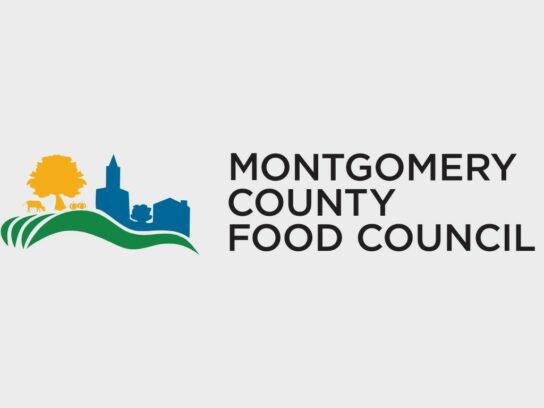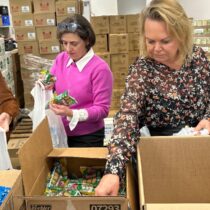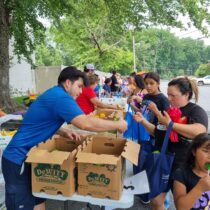
A group of Washington, D.C. area advocates who work to reduce food insecurity spent time Wednesday reviewing the impacts of the recent federal shutdown. The goal – to better prepare for future federal cuts.
“Nonprofits are struggling” and need to constantly pivot, noted Brigid Howe, Executive Director of Nonprofit Montgomery. “Our county can move quickly when it needs to, and this is terrific,” she said. She praised Montgomery County councilmembers for allocating millions of dollars to help those in need.
“This is what it looks like when advocacy works really well,” Howe said during the Montgomery County Food Council Food Systems Advocacy virtual meeting.
John Erzen, a policy advisor for U. S. Sen. Angela Alsobrooks of Maryland, called the federal government’s refusal to fund SNAP benefits “just a complete assault on the benefits and the people who rely on them.”
Alsobrooks is looking into how best to fight government efforts to make SNAP recipients reapply for funding. Erzen noted recipients currently must be recertified yearly.
Sharon Camaco, Executive Director of Community Hope Center, which runs food pantries in the Gaithersburg area, said more people are asking for food. “What we are seeing is a large increase” in people who relied on food pantries during the pandemic but had gotten their lives back together. “They are returning,” she said.
Lindsay Smith, Senior Food & Agriculture Planner with the Metropolitan Washington’s Council of Governments (COG), said the recent shutdown and federal layoffs “showed the strong need to cooperate among groups” that are helping the food insecure.
Sydney Daigle, Regional Food Systems Consultant with COG added, “We never imagined what happened to SNAP. Now we have to expect the unexpected. It’s a new world.”

